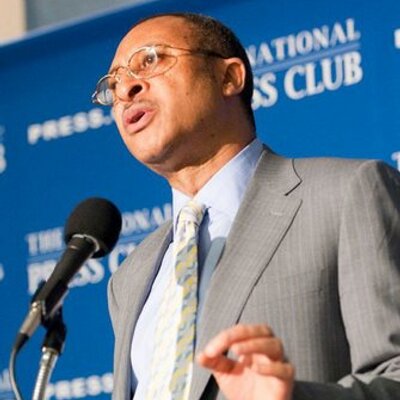Pat Utomi, a prominent figure in Nigerian politics, discusses the controversies surrounding his “Big Tent Coalition Shadow Government,” a citizen-led initiative aimed at holding the government accountable and offering alternative policy ideas. He dismisses a lawsuit filed by the Department of State Services (DSS), emphasizing the right of citizens to organize and express their views in a democracy. He highlights the government’s apparent fear of the Nigerian people, suggesting that the administration is more concerned about the coalition’s potential impact than any legal or constitutional issues. Utomi argues that the initiative is not a parallel government, as alleged by the ruling party, but a necessary response to the failings of the Nigerian political party system. He stresses the coalition’s intention to provide concrete blueprints for addressing critical national issues, such as power generation and healthcare, placing pressure on the government to perform or adopt effective solutions.
Utomi’s vision for the shadow government is to offer practical alternatives to the current administration’s policies, focusing on key areas like defense, electoral reform, and power generation. He emphasizes that the coalition will present detailed plans to the public, forcing the government to either demonstrate the inadequacy of these proposals or adopt them. Beyond criticizing the government, the coalition will engage in direct interventions, such as the New Tribe initiative, which connects Nigerian medical professionals from around the world to develop and implement healthcare programs within the country. These programs aim to provide high-quality healthcare accessible to all Nigerians, regardless of their financial status. Utomi sees these initiatives as concrete demonstrations of how things can be done differently, thereby challenging the status quo and driving positive change.
Drawing from his long history in political participation, including his role in the formation of the APC, Utomi expresses his willingness to collaborate with anyone genuinely committed to improving Nigeria. He laments Nigeria’s current state, citing its position as the poverty capital of the world despite its immense potential. He attributes this failure to politicians obsessed with elections and power accumulation at the expense of good governance. Utomi believes the focus should shift from perpetual election cycles to concrete actions that address the pressing needs of the Nigerian people. He criticizes the prevailing ‘my turn’ mentality in Nigerian politics, arguing that governance should be about tangible impact rather than arbitrary timeframes.
Utomi criticizes the widespread political defections to the ruling APC, attributing them to a political culture where joining the ruling party serves as a shield against prosecution and a guarantee of electoral victory. He points to the manipulation of constitutional provisions against cross-carpeting, highlighting the selective application of the constitution for personal gain while using it to suppress legitimate citizen initiatives. He condemns the transactional nature of Nigerian politics, where personal enrichment trumps public service, and calls for a change in incentives to make public office less attractive to those seeking personal gain. He advocates for a system where professionals in other fields, such as medicine, are more financially rewarded than political officeholders, thereby attracting individuals genuinely motivated by service to the nation.
Utomi identifies the monetization of politics as a major challenge to Nigeria’s political culture, arguing that politics has become a lucrative business attracting individuals with criminal intent. He proposes making public office materially unattractive to discourage those motivated solely by financial gain. He also laments the decline of truth-telling in Nigerian society, observing a culture of fear and self-preservation that prevents people from challenging those in power. He expresses deep concern about the escalating violence and insecurity in the country, predicting a dire future if drastic measures are not taken to address the root causes. He fears Nigeria could become worse than Somalia if the current trends continue.
Regarding the emergence of a potential one-party system, Utomi believes it would be disastrous, leading to internal struggles over resource allocation and ultimately implosion. He criticizes the argument that the current administration should be allowed to complete an eight-year term regardless of performance, emphasizing the need to focus on tangible results rather than arbitrary time in office. He challenges the notion that eight years is a necessary timeframe for achieving meaningful impact, suggesting that even one year of effective governance can yield significant positive change for the people. He calls for a shift away from the self-serving “my turn” mentality that plagues Nigerian politics.
Utomi calls for increased citizen engagement and mobilization to hold the political class accountable. He cites examples from other countries where citizen action led to significant political change, proposing a “Freedom Converge” inspired by historical movements like Martin Luther King Jr.’s march on Washington and Gandhi’s walks in India. This converge aims to bring millions of Nigerians together to demonstrate their power and demand a new Nigeria. He also criticizes the role of religious institutions in failing to mobilize citizens and promote moral leadership. Utomi believes this mass demonstration of citizen power can awaken the political class and usher in a new era of responsible governance.
Finally, Utomi discusses Nigeria’s federal structure, advocating for a return to a more decentralized system. He argues that while a powerful presidency is necessary, the current level of centralization hinders effective governance and development. He points to the success of Nigeria’s regional governments during the First Republic as evidence of the effectiveness of a more federalized structure. He contrasts the current political climate with that era, where politicians were more focused on public service and less on personal enrichment. He laments the current state of affairs, where politicians prioritize self-interest over the well-being of the nation, leading to widespread corruption and a decline in living standards. He concludes by expressing his deep disappointment in the current administration’s fight against corruption, asserting that it has fallen short of expectations and contributed to the nation’s decline.


